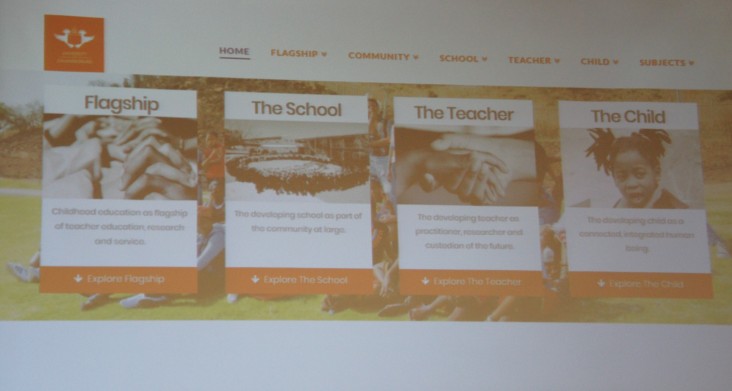Speeches Shim

-
Professor Ihron Rensburg: Vice Chancellor of the University of Johannesburg;
-
Professor Sarah Gravett Executive: Dean of the University of Johannesburg
-
Professor Elizabeth Henning: Head of Centre for Education Practice Research
-
Department of Higher Education and Training; and Basic Education Officials
-
And, all honored and esteemed guests
It is a great pleasure to be with you today here in Soweto to share in the excitement of the launch of the Knowledge for Action website, which is part of the continued relationship between USAID, the ELMA Foundation, the Department of Basic Education, the Department of Higher Education and Training and the University of Johannesburg.
I congratulate Professor Sarah Gravett and the entire Initial Teacher Education Activity Team in Siyabuswa and Soweto for their foresight, passion and drive to make the whole teacher education initiative a reality.
The website will make it easier for educators, researchers, students and the public to access research findings in their quest for evidence-based decision making. Most importantly, it will provide free resources for teachers to use in their classrooms.
While South Africa does face many challenges, the existence of this website and what it seeks to accomplish is a bright light for the future of the country. I am sure that we are all aware that Nelson Mandela famously said that “Education is the most powerful weapon which you can use to change the world”.
This website - combined with the Centre for African Languages Teaching- shows that South Africa is not only committed to education, but to quality education that will benefit all of its citizens.
USAID involvement in education is in response to the South African government quest for quality education. To this end, we partner with entities such as the University of Johannesburg, an institution that is among leaders in education research – in finding innovative ways of strengthening initial teacher education and bolstering the teaching of African home languages.
Research shows that children learn to read faster and better in the language they speak at home, and that they are able to leverage that knowledge to learn more languages.
Nevertheless, many school systems only allow children to be taught in one approved language.
….But not South Africa. This country is saying that it values diversity:
diversity of language,
diversity of culture, and
diversity of thought…...
For South Africa to continue to improve and move forward in all other spheres, we all must play our role in nurturing conditions that will provide high-quality education and make it accessible to all.
We are proud as USAID to be part of this journey.
Thank you.
About the website check: www.knowledgeforaction.co.za

Comment
Make a general inquiry or suggest an improvement.